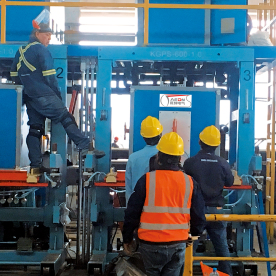[Heat-Resistant HSS Blade]Understanding the Benefits and Applications of Heat-Resistant HSS Blades in Precision Cutting Tools
News 2024-10-13
The world of manufacturing and industrial applications has evolved significantly with the advent of advanced technology and materials. Among these innovations, Heat-Resistant High-Speed Steel (HSS) Blades have carved a niche for themselves in precision cutting tools, providing enhanced performance and durability. These specialized blades are essential in industries ranging from metalworking to woodworking, where precision, efficiency, and resistance to wear and tear are pivotal. In this article, we will delve into the features, advantages, and various applications of heat-resistant HSS blades, highlighting why they are becoming a preferred choice in cutting operations.
What is High-Speed Steel?
High-Speed Steel (HSS) is a type of tool steel that is known for its ability to withstand high temperatures without losing its hardness. This property allows it to maintain its cutting edge even in demanding applications where traditional carbon steel blades would fail. HSS is generally alloyed with elements such as tungsten, molybdenum, chromium, and vanadium to enhance its toughness and wear resistance. The introduction of heat-resistant HSS blades takes these benefits a step further, specifically by optimizing the material's performance in high-temperature environments.
Features of Heat-Resistant HSS Blades

Understanding the Benefits and Applications of Heat-Resistant HSS Blades in Precision Cutting Tools
1. **Heat Resistance**: These blades are specifically designed to maintain their hardness and structural integrity when exposed to high temperatures, reducing the risk of deformation or failure during cutting operations.
2. **Wear Resistance**: The alloying elements in heat-resistant HSS provide exceptional wear resistance, leading to longer tool life and reduced downtime for replacements.
3. **Impact Toughness**: Heat-resistant HSS blades are engineered to withstand impacts and stresses associated with cutting harder materials, making them ideal for heavy-duty applications.
4. **Sharpness**: The superior sharpness retention of these blades ensures clean and precise cuts, minimizing the need for frequent sharpening and enhancing overall productivity.
Advantages of Using Heat-Resistant HSS Blades
The decision to use heat-resistant HSS blades in various industrial applications offers numerous advantages:

Understanding the Benefits and Applications of Heat-Resistant HSS Blades in Precision Cutting Tools
- **Increased Efficiency**: With their ability to maintain sharpness and cutting efficiency, these blades can operate at higher speeds without compromising performance, thus improving overall workflow.
- **Versatility**: Heat-resistant HSS blades are suitable for a wide range of materials, including high-carbon steels, stainless steels, and alloys, making them versatile tools for various applications in metal and wood cutting.
- **Cost-Effectiveness**: Although the initial investment in heat-resistant HSS blades may be higher, their longevity and reduced need for maintenance often result in lower overall operational costs.
Applications in Various Industries
Heat-resistant HSS blades are utilized in numerous industries due to their reliability and performance. Some of the key applications include:
- **Metalworking**: In industries that process metals, such as automotive and aerospace manufacturing, these blades are leveraged for their ability to cut hard materials with precision while minimizing thermal distortion.

Understanding the Benefits and Applications of Heat-Resistant HSS Blades in Precision Cutting Tools
- **Fabrication**: In fabrication processes where intricate designs and precise cuts are required, heat-resistant HSS blades provide the necessary performance to meet stringent standards.
- **Construction**: The construction industry also benefits from heat-resistant HSS blades for cutting through reinforced materials and metal sheets commonly used in structural applications.
Conclusion
In a rapidly advancing industrial landscape, the choice of cutting tools can significantly impact efficiency, precision, and cost-effectiveness. Heat-resistant HSS blades stand out as a superior choice for various applications, combining durability, heat resistance, and versatility. Their ability to maintain performance under extreme conditions makes them invaluable to industries that require reliable and precise cutting solutions. For businesses looking to optimize their operations, investing in heat-resistant HSS blades is a strategic decision that promises substantial returns in productivity and cost savings.
